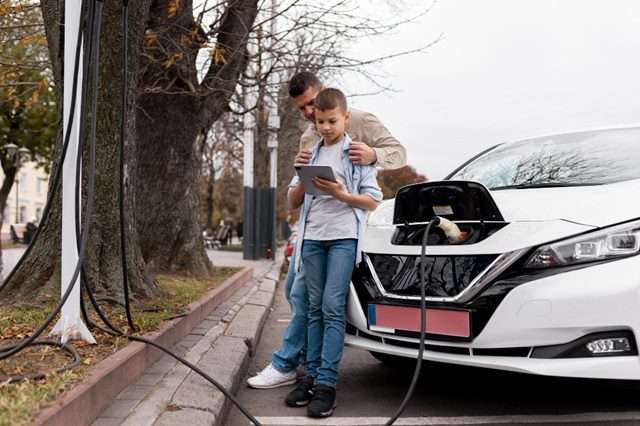With the rise of electric cars, the automobile industry is transforming day by day. The perspective of car insurance evolved to meet the unique requirements after becoming electric cars more common. It sets challenges associated with electric vehicles.
The rise of electric cars:
Electric cars are a futuristic concept that is rapidly gaining traction. The presence of electric vehicles on the road is set to increase significantly. The major automakers are engaging in electrification and government incentives promoting the adoption of electric cars. This shift brings both opportunities and challenges for the car insurance industry.
Key differences between electric cars and traditional cars:
It is more important to understand the differences between traditional and electric cars.
- Battery and Powertrain: Electric cars have complex battery systems and electric powertrains. It differs significantly from ICE vehicles. These components might be expensive to repair or replace.
- Technology and Software: Electric cars often come equipped with advanced technology such as autonomous driving features and sophisticated software. This technology can impact insurance coverage and costs.
- Maintenance and Repairs: Electric cars have fewer moving parts and generally lower maintenance costs. However, trained technicians and specialized equipment are needed. So repairing these vehicles can be more specialized and expensive
Impact of automatic driving:
Most of the electric cars are equipped with semi-automatic or automatic driving features. These advanced features have significant implications for insurance. Automatic driving technology has the potential to significantly reduce accidents. This technology in turn might lead to lower premiums.
Future of car insurance:
The future of car insurance with electric cars is likely to see the emergence of new insurance models:
- Usage-based Insurance (UBI): Insurers might offer usage-based insurance policies. These insurance policies tailor premiums based on actual driving behavior and mileage.
- Sustainable Practices: Insurers themselves may adopt more sustainable practices like paperless policies and green investment strategies. These policies align with the values of eco-conscious consumers.
- Customer Service: It is essential to provide time-to-time customer service to address the concerns and questions of electric car owners. It will be crucial for building trust and satisfaction.
Conclusion:
The future of car insurance is being reshaped by increasing the number of electric cars. Insurers are trying to adapt to the unique characteristics of electric cars and embracing new technologies.
Moreover, they are exploring innovative insurance models to stay relevant in this evolving landscape. By doing so, they can meet the changing needs of consumers and also contribute to a more sustainable and efficient automotive industry.

